He Is Too Fat to Put On the Belt: Becoming an Honorary Masai
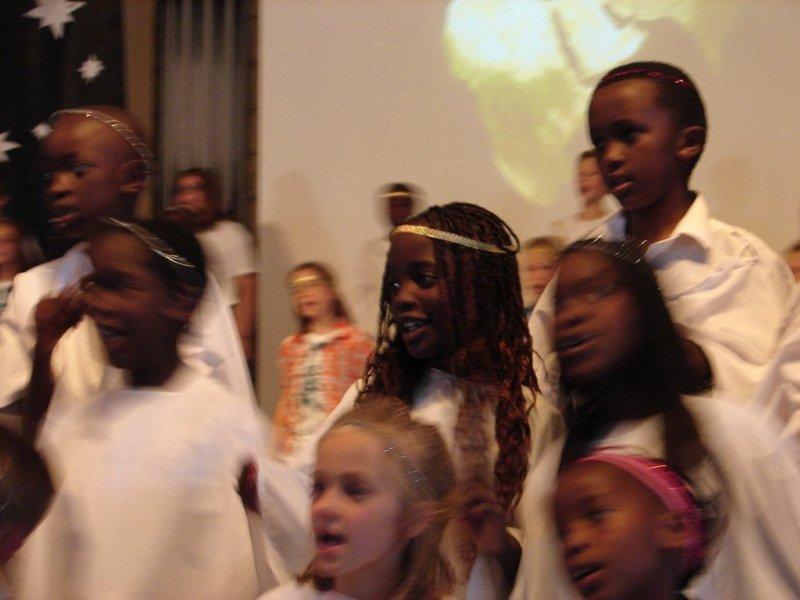
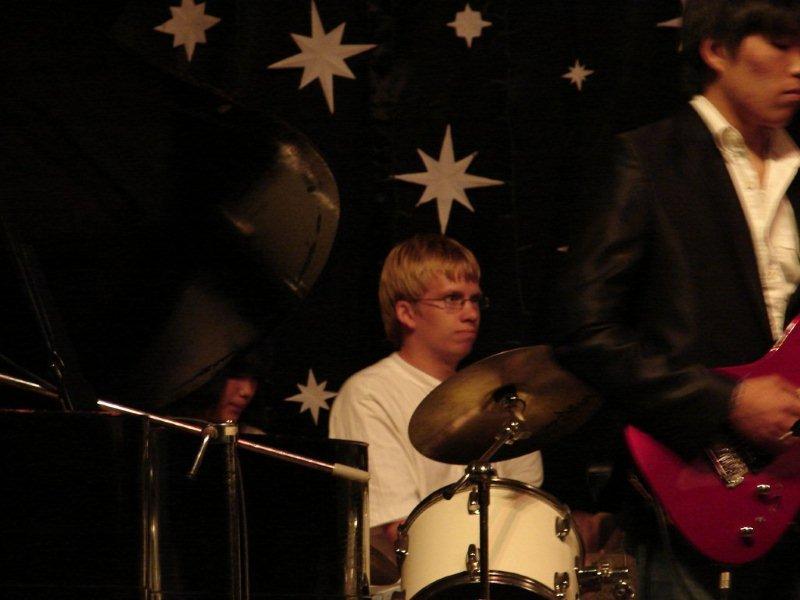
Your neighbors may have unusual days, but I bet I can beat you on this one. Our friends the Mitchells had a baboon jump on their roof, and he fell through the ceiling. No matter how your neighbor’s day was, it was better than having a 150 lb. baboon in the middle of their home. They weren’t home so no one was hurt, but the baboon made a real mess of things, and trust me: cleaning up after an angry baboon is not the recipe for the beginning of a festive holiday season.
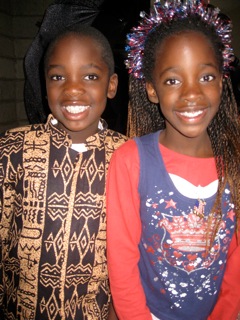 On the last day of school, the local schools give out prizes to the top students. I was asked to go to Oweso, which is a Masai school and very remote. The first time I visited the school eight years ago, a little girl screamed because she had been told by her parents that if she was bad, the white man would come and EAT her. They know me now and greet me without fear.
On the last day of school, the local schools give out prizes to the top students. I was asked to go to Oweso, which is a Masai school and very remote. The first time I visited the school eight years ago, a little girl screamed because she had been told by her parents that if she was bad, the white man would come and EAT her. They know me now and greet me without fear.
It was a study in how cultures can change. Because of the food, the population of the school has doubled in eight years, with virtually no drop outs. Students who live in mud huts are learning computers, and they delighted in the fact that I scored the lowest of all of them on the computer exam. One of them asked if I did poorly to encourage them, and I had to confess that while I wished that is what had happened, they were just all smarter than me.
We don’t want to be cultural imperialists, and there are so many things that I appreciate about the Masai culture. A lock on the door would be a shock; they are a people who share what they have. They aren’t ruled by their possessions, and they love nature. They really know what it is to have a community.
But there are toxic parts of their community that are truly awful. It isn’t uncommon for 50-year-old men to marry 10-year-old girls. Drunken beatings are common. Women are treated horribly in this culture; they have no legal rights, and once your husband dies, the biggest cause of a Masai woman’s death is starvation.
What was interesting was that the community is starting to address these issues. The students did a skit about an old Masai wanting to marry a 10-year-old girl, and they mocked him during the skit. Then a young woman recited a poem she had written that went like this:
I want to be a pilot.
I want to be a doctor.
I don’t want to fetch water.
I have dreams.
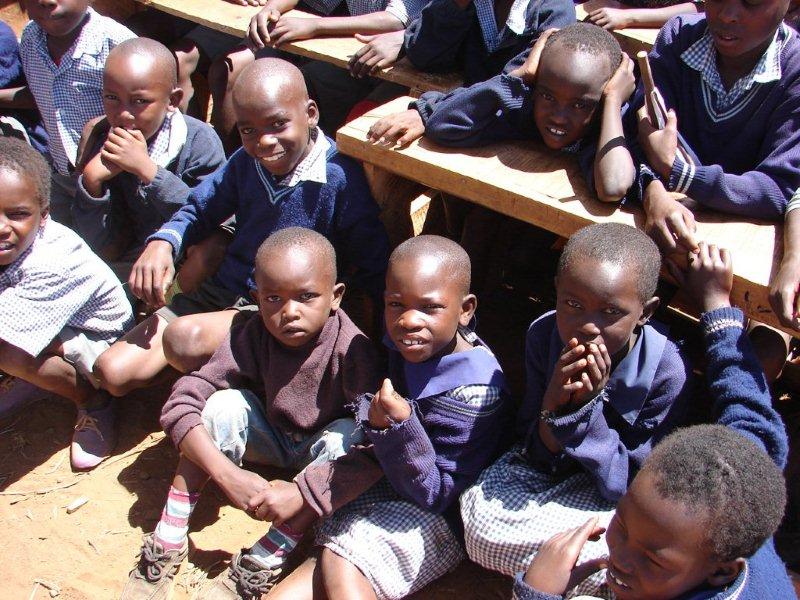 This wasn’t happening from external forces; as people become educated, they begin to see what they need to cast off. The Masai have clung to their ways longer than any other tribe, but even they are changing.
This wasn’t happening from external forces; as people become educated, they begin to see what they need to cast off. The Masai have clung to their ways longer than any other tribe, but even they are changing.
Having a conversation with a Masai is different than talking to someone in the states. You might find the following as regular conversation topics in the states: “Tough economy, huh? How bout them Cubbies? Were you able to purchase several copies of the new Neil Diamond Christmas CD before it sold out?”
Maybe it was just the day, but many of the Masai conversations center around circumcision. When I asked why certain students wore certain items, I was told, “Because he was circumcised recently.” When I asked which students got to sit in front, I was told, “Those who are circumcised.” If you are like me, it caused me to cringe a little harder each time. I probably wouldn’t make a good Masai.
But to my surprise, I was asked to become an honorary member of their tribe. They told me they had never had a white man be a part of their tribe before, but they were so grateful and they felt like I was a part of them. As I received the honor, I told them that since I was now Masai, I would challenge them to a jump off. (The Masai are legendary for their height and leaping ability.) To prove it, I jumped in front of them, which instead of providing them a moment of awe, inspired the biggest laughter I have experienced in Kenya. The chief embraced me after I spoke and said, “You have the face of an old man but the heart of a boy,” which I’m hoping is a good thing, but I’m not sure.
At this point, I had my own Greek chorus. There was a young boy who decided to add color commentary to the proceedings. He started loud and got louder, and he had the most infectious belly laugh I’ve ever heard.
Young Boy: The old man is saying he can jump higher than US!!
I was supposed to give out prizes, and I pretended to drop the first prize.
Young Boy: He almost dropped the thermos!!
As I started to give away a watch, I pretended to put one in my pocket.
Young Boy: He is putting a watch in his pocket!!
Then the fateful moment came when they presented me with the tribal belt:
Young Boy: HE IS TOO FAT TO WEAR THE BELT!!!
I take it back. That got a bigger laugh than my leaping ability.
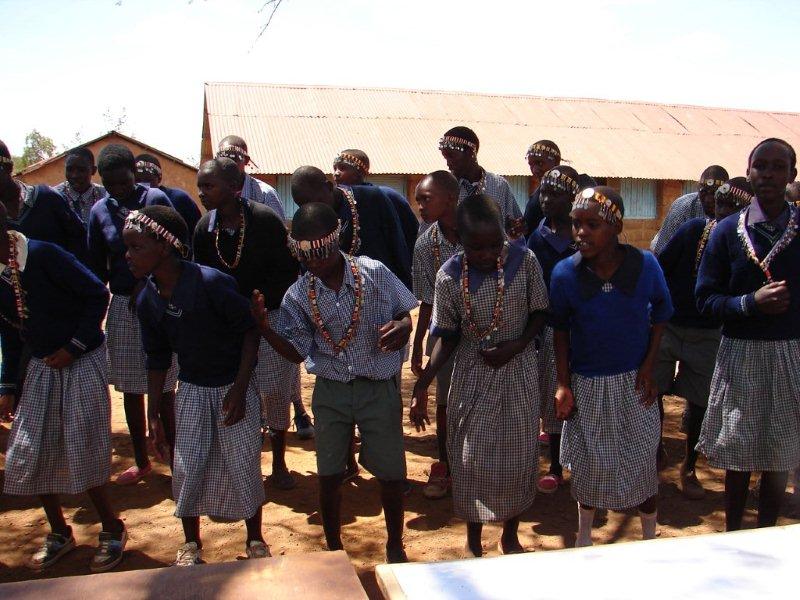 Toward the end of the day, a Masai mother was chosen to speak to the group. She was a tall, regal looking woman, and she was very soft spoken and articulate. She said that she was proud to be a Masai, and she was proud of the way of her people.
Toward the end of the day, a Masai mother was chosen to speak to the group. She was a tall, regal looking woman, and she was very soft spoken and articulate. She said that she was proud to be a Masai, and she was proud of the way of her people.
But then her voice got very small and she said, “I have dreams of a better life for my children.”
The parents were all invited to the computer center, and to watch them marvel was a sight I will be grateful that I experienced for the rest of my life.
When it was time to leave, I realized that this unusual life we are living is really having an impact because of what you have done for these people. It is those kinds of days that have put me in the trap I fell into several years ago.
I saw the needs, and the good that the food and the computers did, and I started to operate out of guilt. If only I worked harder, I could feed more kids. If only I was a better communicator, I would build more centers.
And the guilt caused me to take any speaking engagement I could get. It bore no fruit and it was hard on my family. After several years of this, I went to the Lord and apologized for operating out of guilt, and I was reminded that He does it all, and only He can grow the seed.
So I laid it all down. I had one more speaking engagement in Georgia, and I made the speech. It was over, and I knew I was doing the right thing.
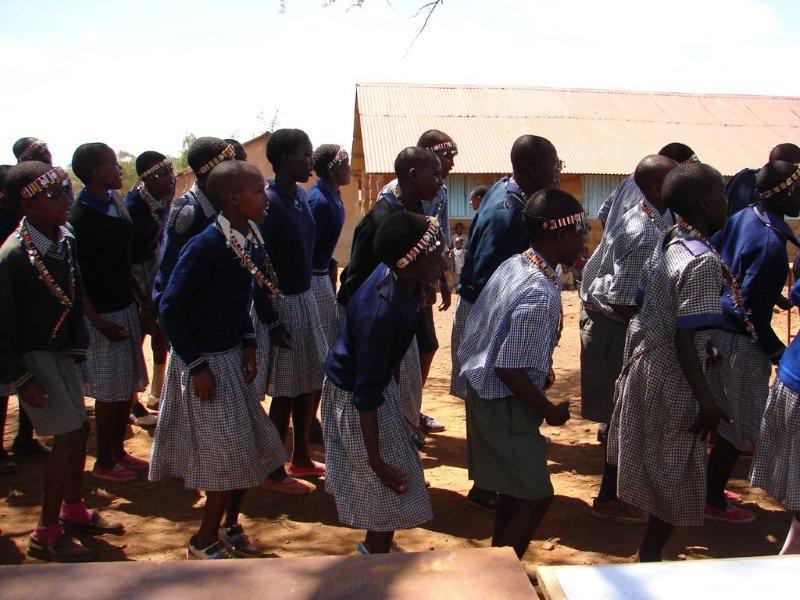 The next day I received an email from someone who attended that last speech. He told me he was the co-author of Tom Landry’s autobiography and he wanted to do a book with us. He has several best sellers to his name.
The next day I received an email from someone who attended that last speech. He told me he was the co-author of Tom Landry’s autobiography and he wanted to do a book with us. He has several best sellers to his name.
He told me I needed an agent, and the agent that agreed to work with us represents Chuck Swindoll and Beth Moore, the biggest authors in the Christian world.
We just signed a contract with Zondervan, the biggest Christian publisher in the world, to come out with a book in 2011.
This is like the CNN award. It came out of the blue, and we had nothing to do with it. When you lay it all down, that is when He likes to make His move.
Your pal,
Steve
P.S. It is time for another contest. Gregg Lewis, our co-author, has suggested the title of the book be “Shifting Out of Neutral.” The publisher likes “Ending the Tears of Hunger.” Nancy likes “A Dream So Big.” My suggestion was “The Magnificent Story of My Fascinating Life.” But we want to hear your suggestions for the title. First prize will be an autographed copy! Second prize is two autographed copies. Enter today!
New videos:
http://www.youtube.com/watch?v=fnmyLHO3imQ
http://www.youtube.com/watch?v=EB2EbFvFgkg
Kenya Kids Can is supported by the prayers and financial contributions of people like you, from all over the world. If you are able, please make a donation today to either the “Peifer School Lunch Program – 000339” or the “Peifer Computer Center Program – 000336.” Steve and Nancy raise their own funding; to support their family directly, make your contribution to “Peifer, Stephen C and Nancy J – Support 047930001.” Thanks in advance!
(Please do NOT send checks directly to Kenya.)
